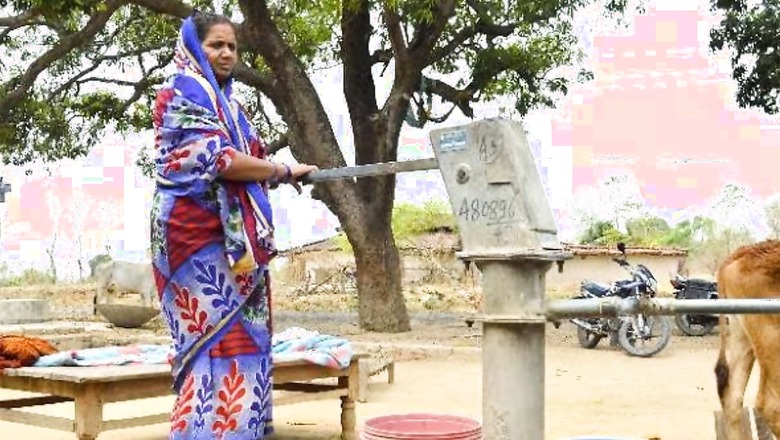
views
Contaminated water, one of the biggest issues plaguing several villages in Uttar Pradesh’s Sonbhadra, has found no mention in any poll manifesto this Lok Sabha Election. “Nobody wants to get their daughters married off in our village since we all suffer from fluorosis, a crippling disease caused by abnormally high fluoride concentrations in drinking water. People look like 60-year-olds even in their youthful days, they are crippled, their bones and teeths are deformed, some are bed ridden while some walk with the help of sticks. Here you will find a majority of the population like me,” lamented Kapil Dev, a local who hails from Dadihara, a village which falls in Myorpur Block of Uttar Pradesh’s Sonbhadra district. Dev’s brother Kasun, too, is crippled and has been suffering from fluorosis.
Dev’s village Dadihara is perhaps not the only village to suffer from a contaminated water table in the ‘energy capital of India’. There are more than 150 villages in five development blocks where hundreds of people are suffering from fluorosis. Ironically, despite being one of the grave issues of Sonbhadra, a part of Robertsganj Lok Sabha Constituency, which is going to poll in the seventh and last phase, scheduled on June 1, the issue is not the part of the election manifesto of any of the political parties.
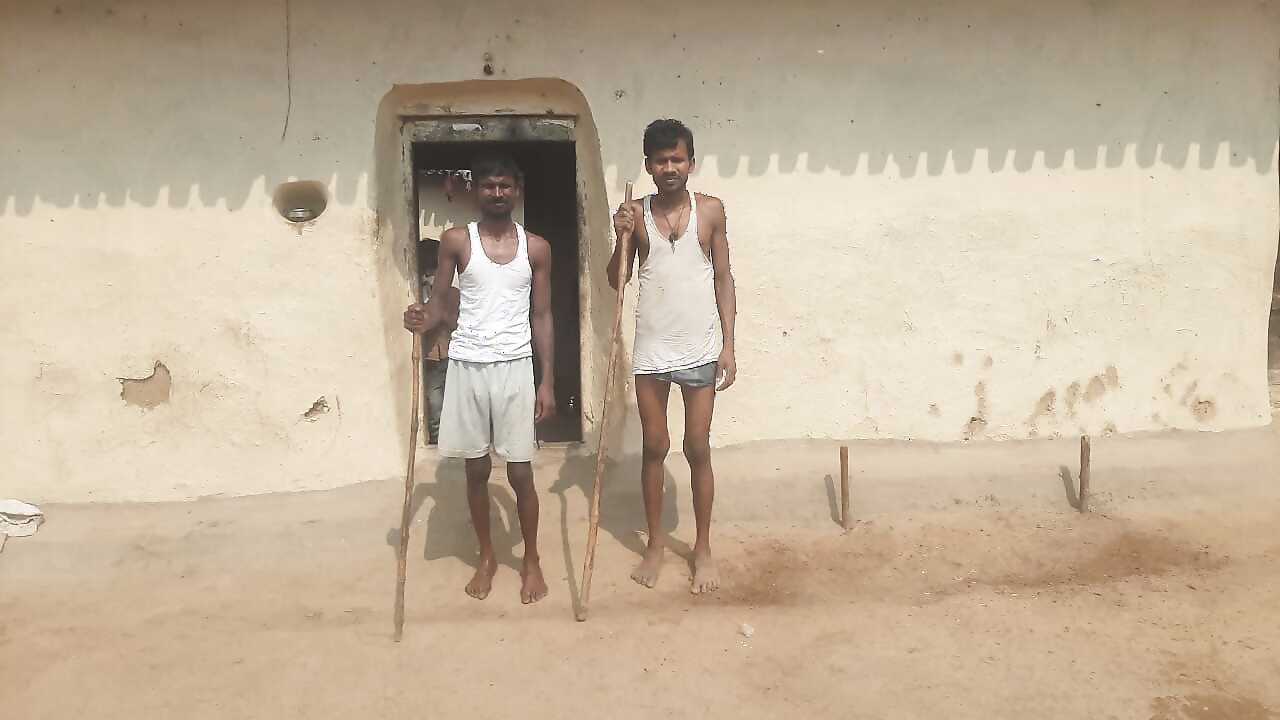
“Bhaiya yahan jaati pe vote dalta hai…samasya pe ya vikaas pe nahi (Brother, here voting is done on the basis of caste, not on issues or development). It’s the same reason why none of the political parties are concerned about the issue of contaminated water tables that has claimed hundreds and thousands of lives so far,” said Kapil Dev, 35, who is suffering from dental and skeletal fluorosis.
Kapil’s father Dharmraj Yadav, was a milk-seller, was a huge cricket fan. When team India won the Cricket World Cup under the captaincy of Kapil Dev in 1983, Yadav decided to name his son after Kapil Dev, wanting him to build his career in the field of sports, specially cricket. But Yadav’s dream was shattered a couple of years ago when his son was detected with fluorosis and doctors told him that he won’t be able to walk as before, following the bone deformation.
“It was in 2020, the doctor, whom my father, who too was suffering from fluorosis, was consulting told me that I am also suffering from fluorosis after I experienced severe joint pain. A year later, my brother Kisun too developed the similar symptoms and this came as a rude shock for my father who passed away,” said Kapil Dev, who looks after his ancestral business of milk selling.
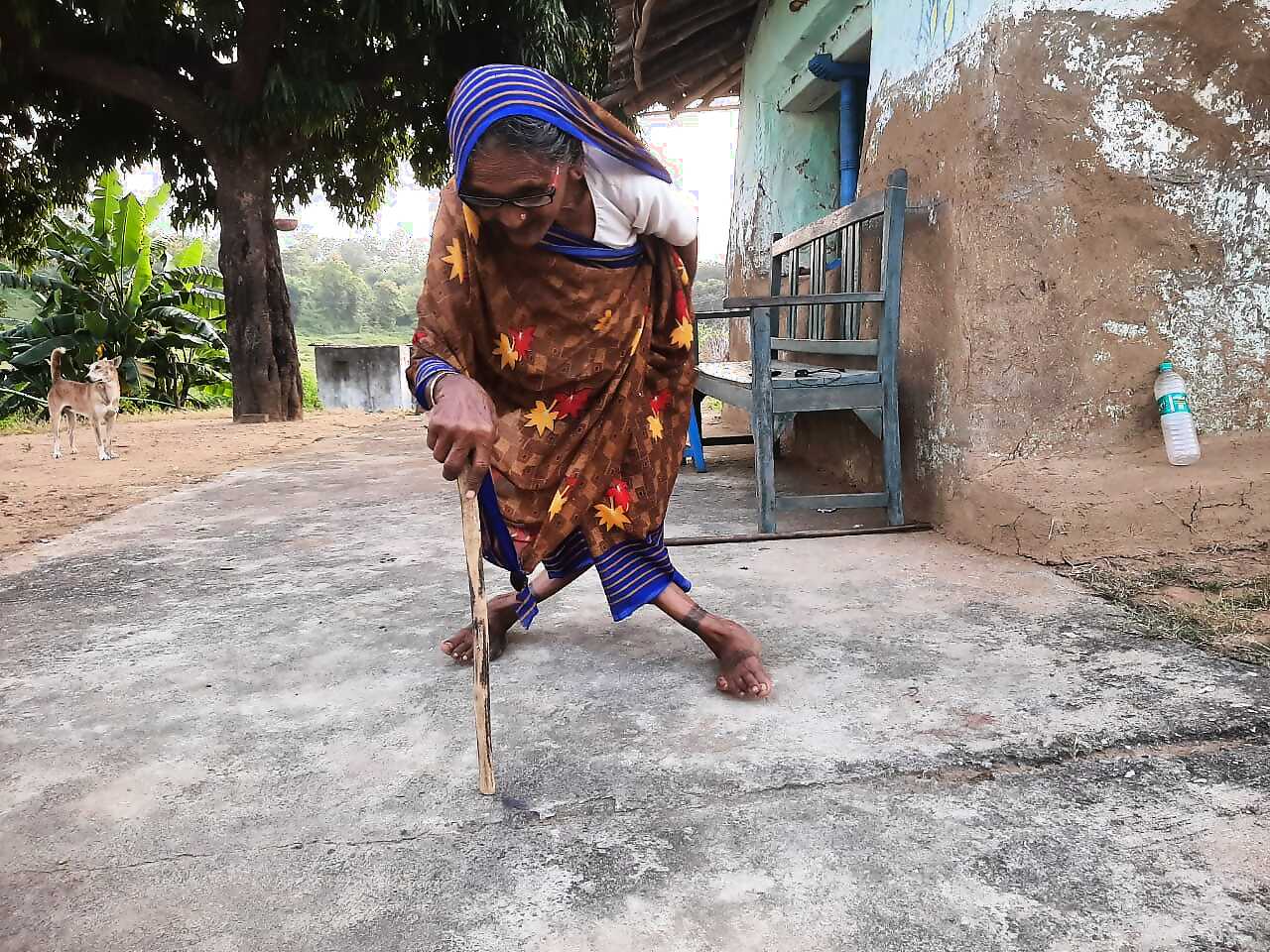
Dev said, in the last two years, the joint pain and deformation of teeth has increased to an extent that it becomes difficult for him and his brother to walk. “Milk selling business requires a lot of labour. But due to the extreme joint pain and bone deformation, it is becoming difficult for us to carry out the family business. We are walking with the help of the stick. We are worried, who will look after the family after us, we haven’t got married as well,” said Dev, expressing his concern.
Dev said around 60 per cent of the population in his village is suffering from fluorosis disease. Other than Dev’s village, the survey report of Jal Nigam suggested that there are more than 150 villages in the four development blocks of Sonbhadra are grappling with the problem of contaminated water tables. Chopan, Dudhi, Myorpur, Nagwa and Robertsganj are among the eight development blocks where fluoride contamination in water is abnormally high, which is causing fluorosis.
“Ideally, fluoride concentrations in drinking water should be less than 1.5 mg/liter but here, especially in the five development blocks of Sonbhadra, the fluoride concentration in the drinking water is abnormally high,” said Jagat Narayan Vishkarma, an environmentalist associated with an NGO ‘Vanvasi Sewa Ashram’, which is working for the welfare of the people in Sonbhadra.
Vishkarma, who himself is suffering from fluorosis, said that not only the groundwater pollution but Sonbhadra is also subjected to air pollution. “In 2012, a team of researchers from Delhi’s Centre for Science and Environment visited Sonbhadra and collected blood, nail and hair samples of the people. The findings were shocking as the level of mercury was found to be very high,” Vishkarma told News18.
He said in Sonbhadra, the fly ash emanating from coal mines is causing fatal diseases like cancer in the people. The coal-based power plants in the Singrauli-Sonbhadra belt, located on the border of Uttar Pradesh and Madhya Pradesh, consume 103 million tonnes of coal in a year. The consumption of such a large quantity of coal produces about 35 million tonnes of fly ash each year, which does not get proper disposal and has gotten concentrated in air, water and soil of the region.
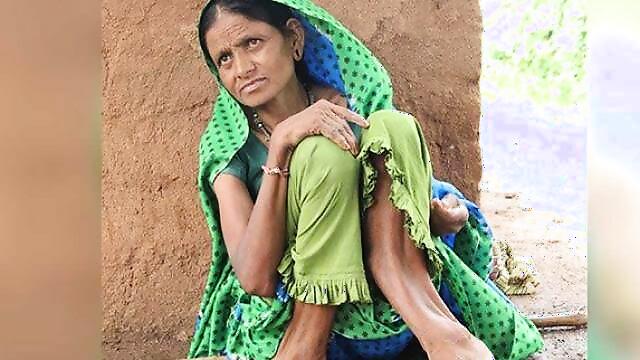
Despite water table-contamination being one of the grave issues, there is no mention of this in the election manifestos of the political parties. “It’s caste politics which rules the roost here and not the development politics. It’s the only reason why the water contamination issue is no issue for the political parties,” he pointed out.
Robertsganj is the headquarter of Sonbhadra district of Uttar Pradesh. There is also a Lok Sabha seat with the same name. Robertsganj Lok Sabha seat consists of five assembly constituencies. Of these, four seats – Ghorawal, Robertsganj, Obra and Duddhi – fall in Sonbhadra district. A Chakia assembly seat is located in Chandauli district. Since the last two elections, BJP and its ally Apna Dal have been in control here.
Lok Sabha Elections 2019
In the 2019 Lok Sabha elections, BJP ally Apna Dal (Sonelal) MP Pakori Lal Kol defeated Samajwadi Party’s Bhai Lal by 54,336 votes. Pakodi Lal Kol got 447,914 votes, while Bhai Lal got 3,93,578 votes. Congress party’s Bhagwati Prasad Choudhary stood third. He got 35,269 votes.
Lok Sabha Elections 2014
In the 2014 Lok Sabha elections for Robertsganj, BJP’s Chhote Lal won by defeating BSP’s Sharda Prasad by 1,90,486 votes. SP’s Pakori Lal Kol secured third place with 1,35,966 votes. Congress’s Bhagwati Prasad Chaudhary came fourth with 86,235 votes, and CPI’s Ashok Kumar Kannaujiya was fifth with 24,363 votes.
History
The Robertsganj parliamentary seat has seen a dynamic political history since its first election in 1962. Ram Swaroop of the Congress Party won the inaugural elections and retained his seat in 1967 and 1971. The 1977 election saw Shiv Sampat Ram of the Janata Party win, followed by Congress’s Ram Pyare Panika in 1980 and 1984. The BJP’s Subedar Prasad became MP in 1989, but Janata Dal’s Ram Nihor Rai took the seat in 1991. The BJP’s Ram Shakal won consecutively in 1996, 1998, and 1999. In 2004, BSP’s Lal Chandra Kol emerged victorious, while SP’s Pakodi Lal Kol won in 2009. The BJP’s Chhote Lal Kharwar secured the seat in 2014, followed by BJP’s Pakodi Lal Kol again in 2019. This history reflects the shifting political landscape of Robertsganj, with significant representation from Congress, Janata Party, Janata Dal, BSP, SP, and BJP over the decades.
Caste equations
BJP maintains a strong position in Robertsganj, controlling all five assembly seats in the constituency. Robertsganj has 1,363,495 registered voters, including 727,125 male and 636,333 female voters. In the 2019 elections, voter turnout was 45.32%. The constituency has a significant population of Scheduled Castes (23.9%) and Scheduled Tribes (16.6%), according to the 2011 census. The seat is currently held by Apna Dal (Sonelal) under the NDA, and it is expected that Pakodi Lal Kol will be their candidate again.
On the issue of water contamination, Saurabh Gangwar, Chief Development Officer (CDO), Sonbhadra confirmed the problem of water table contamination in around 150 villages in Sonbhadra District and told News18 that the district administration has already distributed water purifiers to almost every household, helping them in getting clean drinking water. Besides, he said that pipe water connections are also being provided to almost every household under Jal Kal Scheme which will not only ensure the supply of clean drinking water but will also cut down the issue of water contamination.
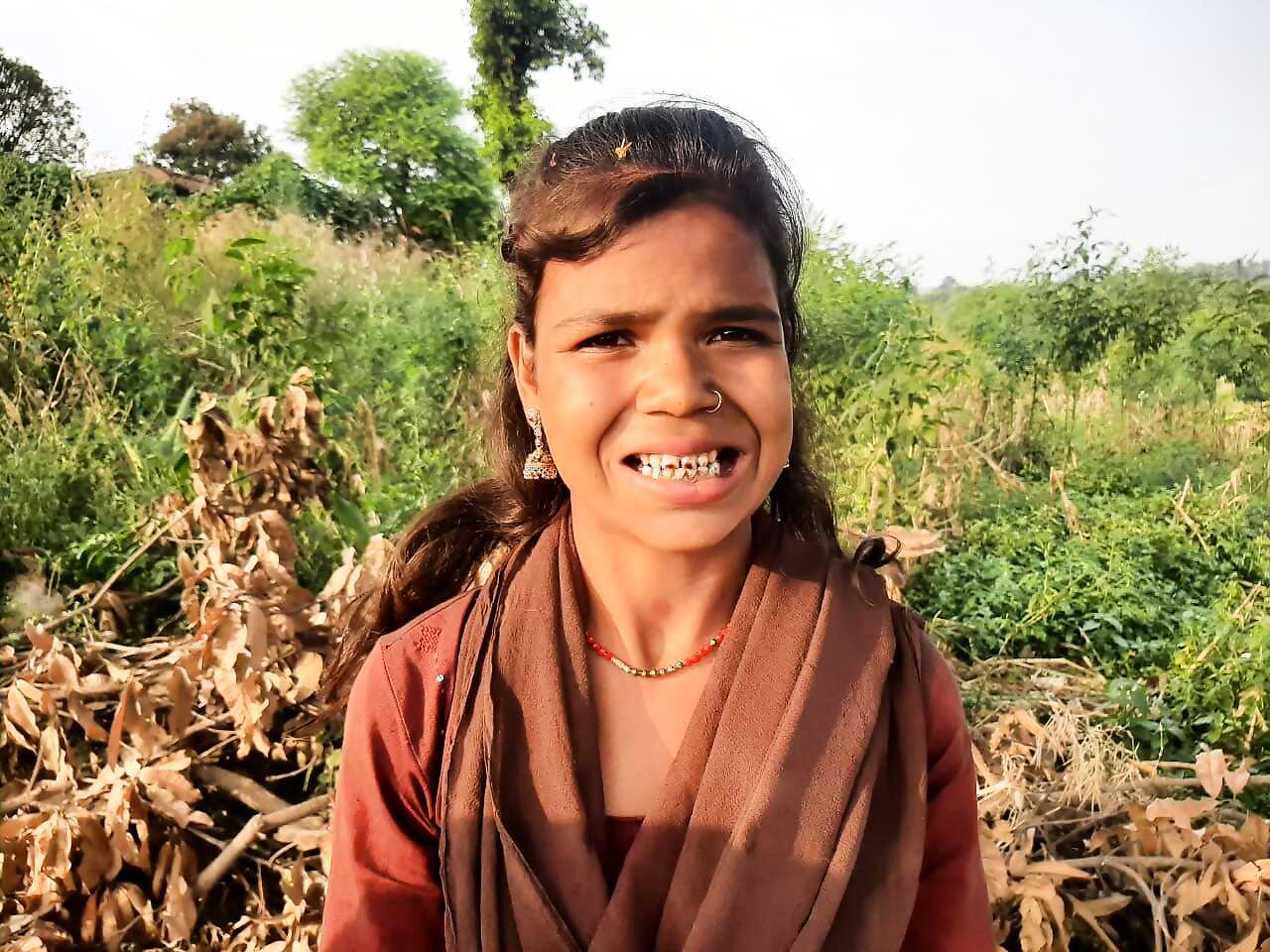
People, however, said the UP Government did install some water treatment plants in the affected villages but due to technical reasons, it is all lying defunct. “Owing to the low water levels, the Reverse Osmosis (RO) plants which were installed a few years back went kaput. Also, the water purifiers need proper maintenance, there are many people who are poor and ignorant and hence they are unable to maintain the water purifiers. Also, there are still many households left which are yet to get the water purifiers. We have heard that the UP Government is ensuring water connections of the potable drinking water to every household under Jal Kal Yojna but it is yet to cover a huge lot of area,” said Kisun Dev, brother of Kabil Dev, who hails from Dadihara village. He said his village is yet to be covered under the ambitious Jal Kal Scheme.
People, however, said that they are still hopeful that any political party will approach them and address the issue of water contamination, which is taking a toll on their health. “There are still a few days left for the polling. I am sure some party would address our issue and will include our issue in their list of election manifestos,” said Sunita Devi, another local who hails from Mayor Block of Sonbhadra.
Explore in-depth coverage of Lok Sabha Election 2024 Schedule, Voter Turnout, Upcoming Phase And Much More At News18 Website










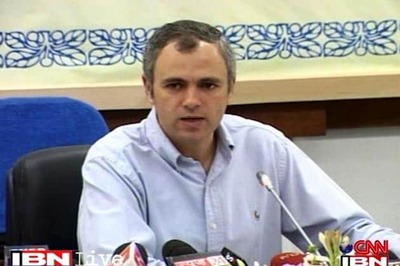









Comments
0 comment